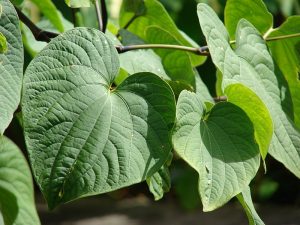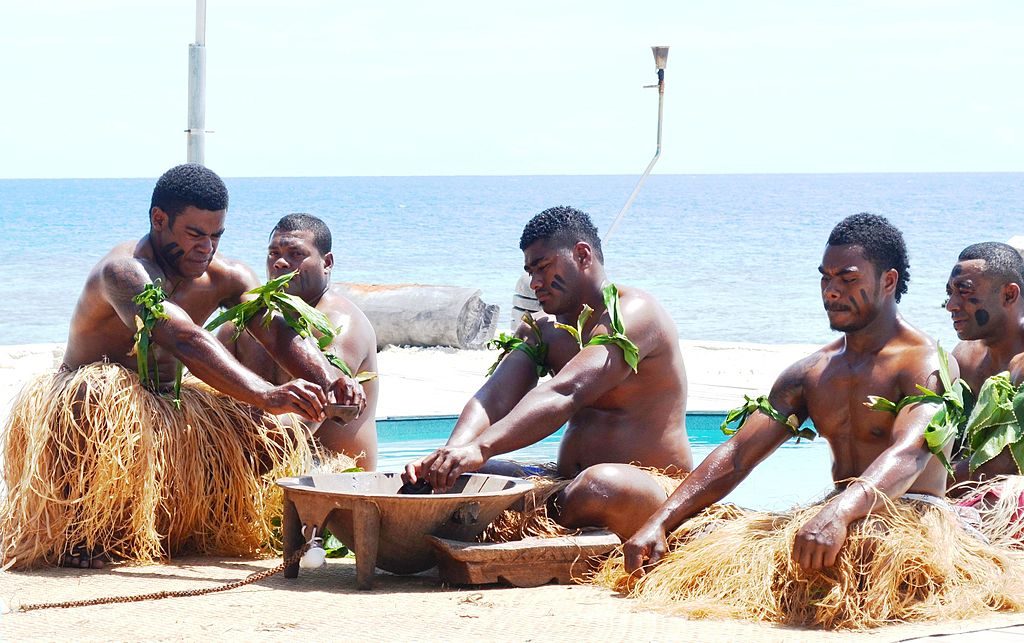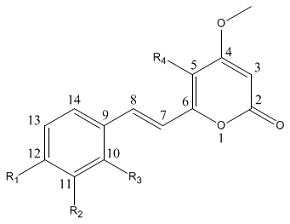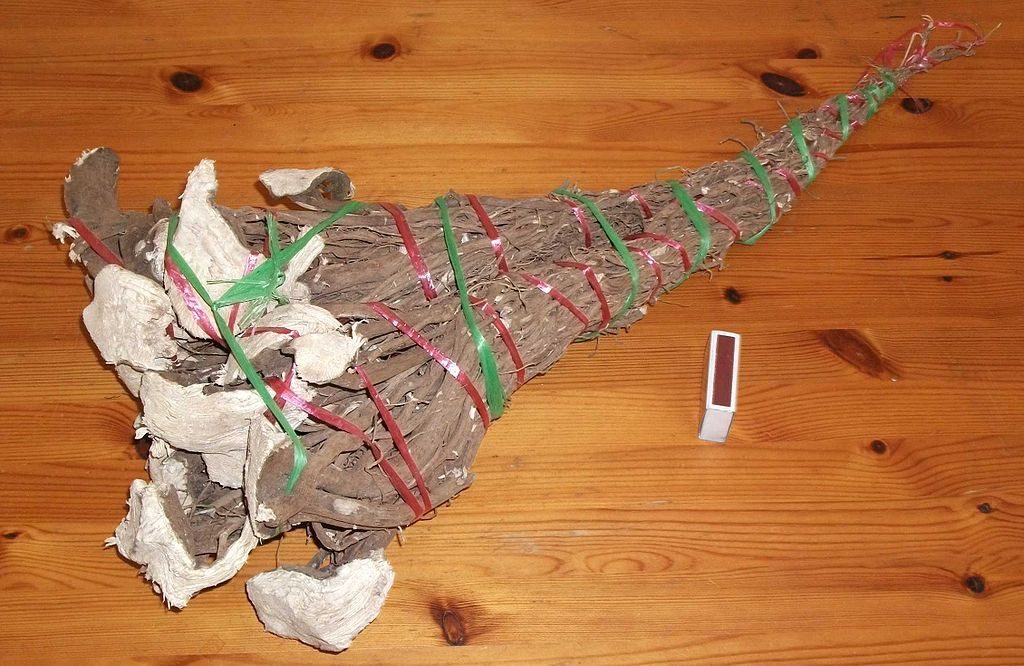Pacific herb kava kava may help with stress by reducing anxiety.

- Reducing anxiety. Kava kava has been identified as a reliable remedy for anxiety.
Overview
Kava kava (Piper methysticum) is a plant with deep ties to Polynesian and Micronesian cultures and a long history of use as a psychoactive plant. Cultivars of kava kava are best grown in loose soil garnering plenty of rainfall and minimal sunlight.
Kava kava contains multiple bioactive ingredients that wield anxiolytic and sedative properties, known as kavalactones. Among the 18 currently recognized kinds of kavalactones, there are 6 that seem to possess potent nootropic activities:
- kavain
- dihydrokavain
- methysticin
- dihydromethysticin
- yangonin
- desmethoxyyangonin
Current research has honed in on the capacity of kava kava to reduce anxiety. To that effect, kava is also popular as a nootropic and sleep aid.

How Kava Kava Might Help With Stress
The kavalactones extracted from kava kava leaves and roots rapidly traverse the blood brain barrier and enact its effects on the brain in a variety of ways:
Stimulating GABA activity

GABA is the main inhibitory neurotransmitter in the body. By increasing the binding of GABA to GABAA receptors as well as their availability, kava kava promotes anxiolytic effects, along with the associated calmness and relaxation.1 2 This mechanism is reminiscent of the action of benzodiazepines, which are commonly prescribed as anti-anxiety medications.
Inhibiting norepinephrine reuptake
The neurotransmitter norepinephrine helps promote alertness. Kava is believed to block the reuptake of norepinephrine, the result of which is a brief increase in stimulation followed by an overall diminished response and reduced receptor activity.3
Kava Kava Benefits & Uses for Stress
Kava kava is typically taken to reduce stress and anxiety. Kava kava has been shown to:
- Produce a state of calm and well-being without negatively affecting cognitive performance4
- Relax muscles
- Enhance sleep5
Beyond its medical benefits, kava kava root bundles have long been incorporated into religious rituals in the Western Pacific, and it is popularly served as a hot drink before meals or as a snack bar.6
Noble vs Non-Noble Kava Kava
The pharmacologic makeup of kava kava, and thus its biochemical impact, depends heavily on its cultivation. Traditional preparation cultivates noble kava kava, which is considered high quality.
Its lengthy development (noble kava kava takes roughly 4 years to mature) has led a number of manufacturers to create more cost-efficient non-noble varieties of kava kava that can be harvested within a year’s time. Non-noble kava kava, however, has been associated with liver issues, nausea, and “kava hangovers,” and the confusion between noble and non-noble types have led to the ban of kava kava use in several countries.7 8
In recent years, government and NGOs have established a system to monitor kava quality and warn customers against using non-noble varieties.9

Research
Animal Research
Various rodent studies have demonstrated the ability of kava kava to relax the body and reduce anxiety.10 11
Human Research
Clinical research corroborates kava kava’s ability to reduce anxiety.
In this randomized, double-blind, placebo-controlled investigation, volunteers were given either a single 300 mg dose of kava kava extract or a placebo. Based on the state-trait-cheerfulness-inventory, which measures individuals’ cheerfulness, seriousness, and mood, the kava group had increased cheerfulness and improved performance on cognitive tests compared to the placebo.
- The study concluded that “unlike conventional benzodiazepine-type anxiolytics, which tend to impair cognitive performance and to increase the occurrence of negative affective states, Kava is a potent anxiolytic agent, which, additionally, can facilitate cognitive functioning and can increase positive affectivity related to exhilaration.”12
Kava kava (100, 200 mg) may decrease anxiety and depression in perimenopausal women
In this randomized, placebo-controlled investigation, 69 perimenopausal women took a calcium control, calcium mixed with 100 mg of kava kava, or calcium mixed with 200 mg of kava kava every day for 3 months. Compared to the control, both kava kava groups demonstrated a significant decrease in anxiety and depression.
- The study concluded that “in perimenopausal women, administration of Kava-Kava induces an improvement of mood, particularly of anxiety.”13
Kava kava (120-240 mg) may reduce anxiety in generalized anxiety disorder
In this placebo-controlled, double-blind investigation, 75 people with generalized anxiety disorder (GAD) were administered 120 to 240 mg (depending on response) of aqueous kava extract or placebo during a 6-week period. The kava kava group was found to have a significant reduction in anxiety compared to that of the placebo. No adverse side effects were reported in any of the groups besides minor headaches with kava kava.
- The study concluded that “standardized kava may be a moderately effective short-term option for the treatment of GAD.”14
Kava extract WS 1490 (200 mg) seems to improve sleep issues caused by anxiety
In this randomized, double-blind investigation, 61 patients with sleep disturbances took either a placebo or 200 mg of kava extract WS 1490 every day for 4 weeks. Significant improvements in anxiety and well-being were reported by the kava kava group relative to placebo.
- The study concluded that “sleep disturbances associated with non-psychotic anxiety disorders can be effectively and safely treated with kava extract.”15
Kava kava may be a suitable treatment for anxiety
This systematic review and meta-analysis assessed all available randomized, double-blind, and placebo-controlled studies concerning the efficacy of kava extract as a symptomatic treatment for anxiety at the time. Analysis of the investigations revealed that kava kava significantly reduced anxiety across the studies following the Hamilton Rating Scale for Anxiety (HRSA).
- The review concluded that “kava extract is superior to placebo as a symptomatic treatment for anxiety. Therefore, kava extract is an herbal treatment option for anxiety that is worthy of consideration.”16
Dosage for Stress
- Successful research studies tend to use from 100 – 300 mg of kava kava per day.
- Typical kava kava supplements come in 200 – 250 mg daily servings
Available Forms
- Kava kava aqueous extract, standardized to approximately 30% kavalactones, typically offered in capsules
- Kava kava powder, best mixed with hot water as in tea
- Kava kava bars
Supplements in Review Says
- Kava kava standardized to 30% kavalactones at 200 mg, for stress.
Kava is recognized as a natural remedy for anxiety. We highly recommend kava for anxiety relief based on considerable and consistent scientific backing.
Take standardized noble kava for stress relief. It is critical to use noble, as opposed to non-noble, kava kava in order to optimize effectiveness and reduce the risk of adverse side effects. Kava standardized to 30% kavalactones taken at 200 mg per day is a good place to start.
Leave a Reply